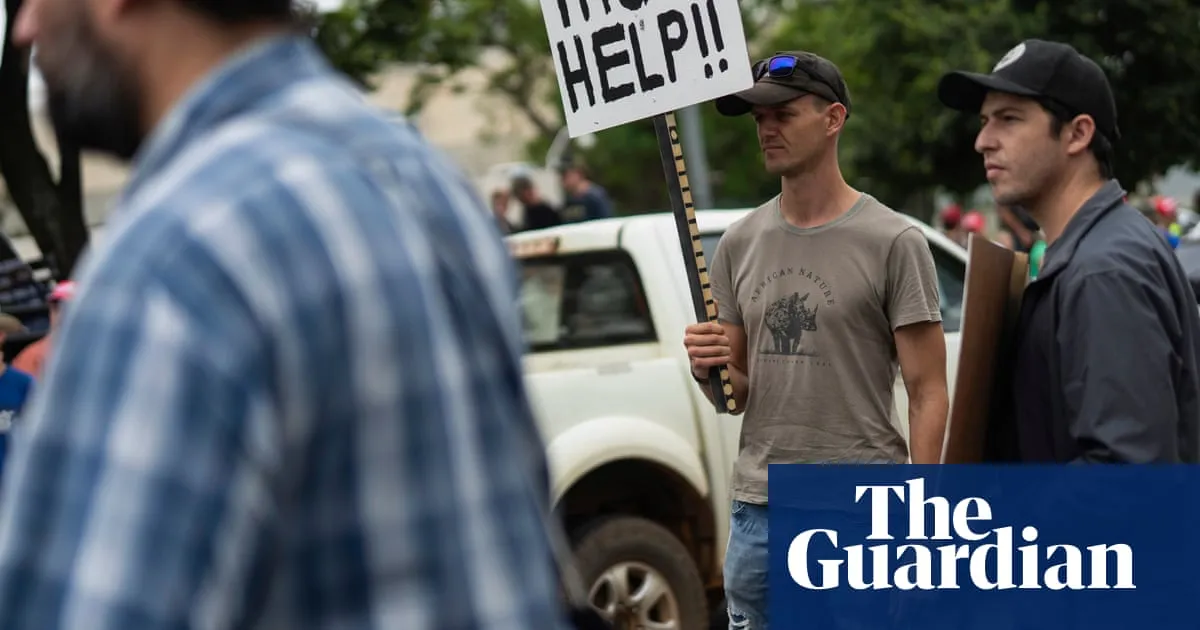
The Episcopal Church’s migration service has taken a bold stance against a recent directive from the federal government that seeks to facilitate the resettlement of white South Africans granted refugee status. This decision is rooted in the church’s longstanding commitment to racial justice and reconciliation. Presiding Bishop Sean Rowe made the announcement on Monday, coinciding with the arrival of 59 South Africans at Dulles International Airport, where they were welcomed by a government delegation on a private charter plane.
In a controversial move, former President Donald Trump initiated a fast-tracked refugee status specifically for white South Africans, alleging systemic discrimination by their government. This decision came amid the abrupt shutdown of the overall U.S. refugee program, which has left many other would-be refugees in limbo, undergoing prolonged vetting and processing. The action has drawn significant criticism, especially from organizations committed to equitable treatment of all refugees.
Episcopal Migration Ministries, a longstanding partner in refugee resettlement under federal grants, has decided to halt its collaboration with the government. Bishop Rowe indicated that approximately two weeks prior, the government had reached out, expecting the ministry to assist in resettling the South Africans under the terms of its grant. In light of the church's commitment to racial justice, Rowe stated, "We are not able to take this step." He confirmed that the church plans to terminate its refugee resettlement grant agreements with the U.S. federal government by the end of the federal fiscal year.
The South African government has strongly refuted allegations of discriminatory practices against its white minority citizens. In his statement, Rowe expressed his distress over the preferential treatment given to a select group of refugees while many others have been waiting in refugee camps or facing perilous conditions for extended periods. "It has been painful to watch one group of refugees, selected in a highly unusual manner, receive preferential treatment over many others," he stated.
Rowe lamented the fate of numerous refugees who had previously worked alongside U.S. military forces in Iraq and Afghanistan, now facing danger due to their service. He emphasized that many individuals, including Christians, are victims of religious persecution who are now being denied entry into the United States.
Despite the cessation of this partnership with the government, the Episcopal Church plans to explore alternative avenues to support immigrants already in the U.S. and those stranded abroad. This decision marks the end of a collaboration that has successfully aided nearly 110,000 refugees over the past four decades, including those from Ukraine, Myanmar, and the Congo.
This isn’t the first significant disagreement between the Episcopal Church and the Trump administration. Bishop Mariann Budde of Washington, D.C., previously drew criticism from Trump during an inaugural prayer service for advocating mercy for vulnerable groups, including migrants and LGBTQ+ children. In contrast, another faith-based organization, Church World Service (CWS), has expressed willingness to assist the newly arrived South Africans. CWS President and CEO Rick Santos voiced concern over the government’s decision to prioritize Afrikaners while neglecting other refugee populations in dire need of resettlement.
He stated, "Our faith compels us to serve each person in our care with dignity and compassion," reaffirming CWS's commitment to supporting all eligible refugee populations seeking safety in the United States.
The Episcopal Church’s decision to refuse federal directives concerning white South African refugees highlights the ongoing debate about refugee resettlement policies in the U.S. As organizations navigate the complexities of these policies, their commitment to racial justice and humanitarian principles remains at the forefront of their missions.